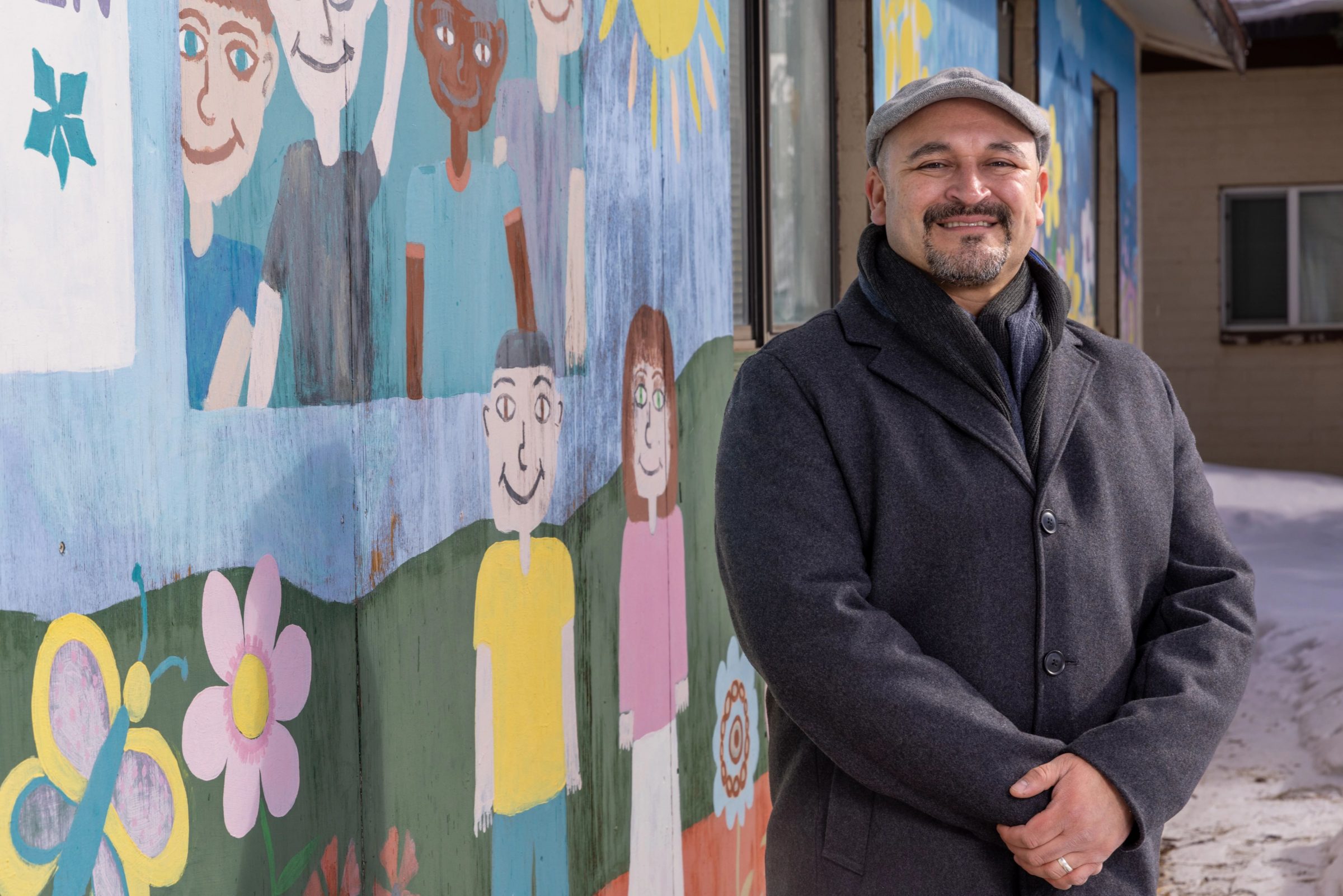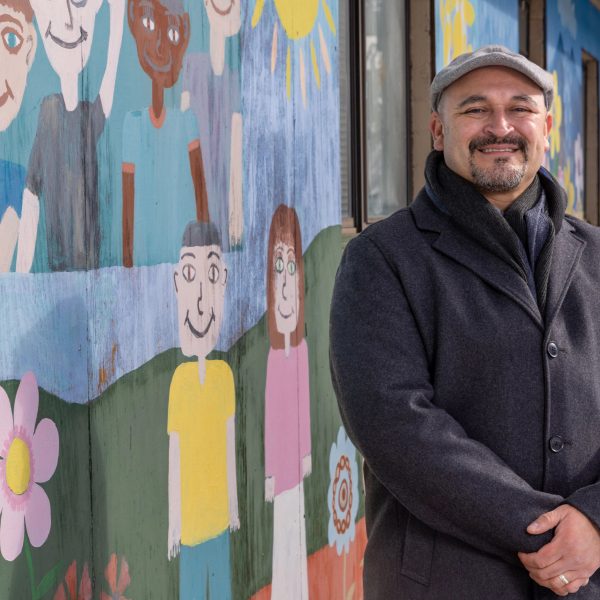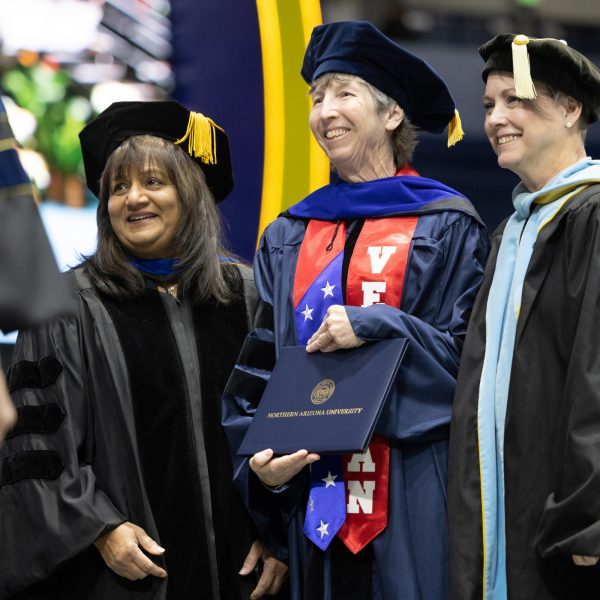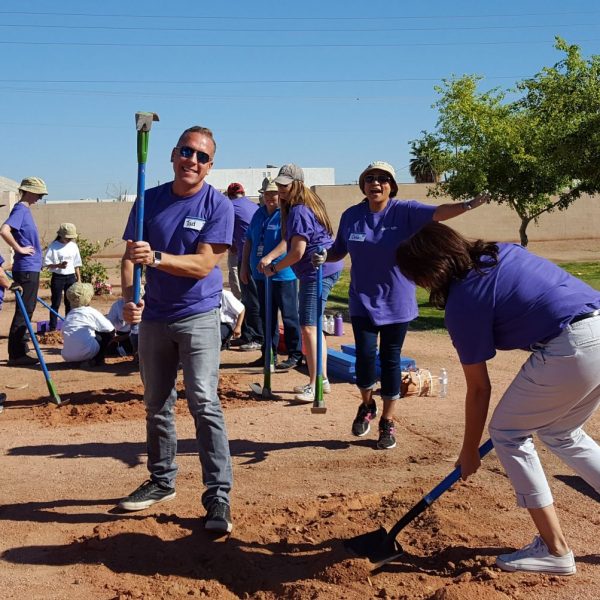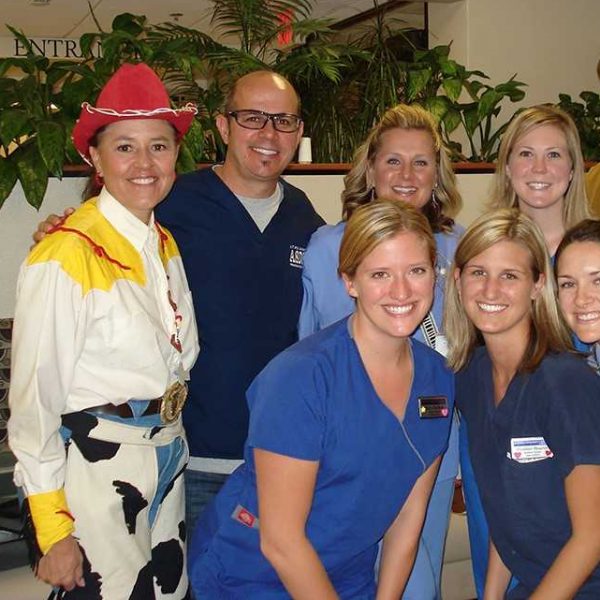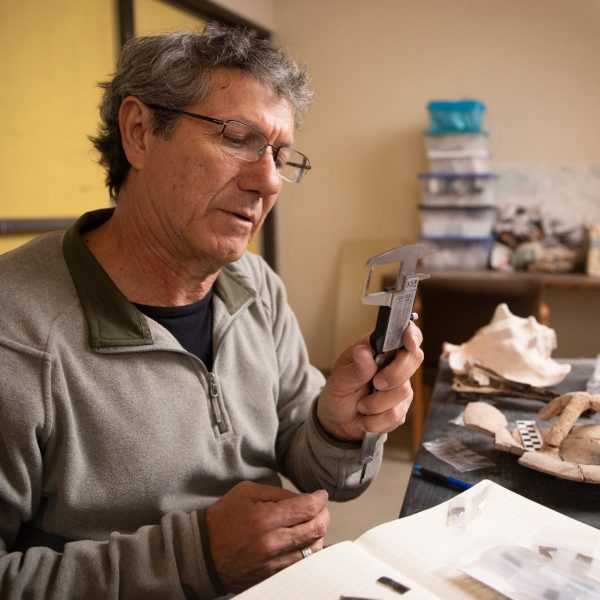What can you do with an anthropology degree?
It’s a question parents worldwide may ask when it’s time for college applications. The answer may surprise you.
In ways large and small, Jeronimo Vasquez, an NAU alumnus with a master’s in Applied Anthropology, has dedicated his career to serving his community. As vice chair of the Coconino County Board of Supervisors, Vasquez hit the ground running when he started in 2021. Within a few months of his swearing-in, six wildfires and seven floods hit the area. He and the board had to navigate these disasters while managing the ongoing COVID-19 crisis, allocating a $248 million budget to ensure the county continued to run smoothly and serve all its citizens.
A career serving Arizona
It’s a big job, but Vazquez remains committed to seeing, hearing, and representing each and every one of the diverse communities in northern Arizona. He has remained dedicated to community throughout his career, serving on and leading the North Country Healthcare board of directors, treasurer of the Coconino Plateau Water Advisory Council, and vice-chair of MetroPlan.
Before taking his current position, Vasquez served as the 21st Century Community Learning Center (CCLC) coordinator at Killip Elementary in Flagstaff for 14 years. Vasquez implemented and supervised the 21st CCLC grant, established school-wide Academic Parent Teacher Teams, and helped develop Killip into a STEM (science, technology, engineering, and math) academy, culminating in Killip receiving the highly prestigious International Cognia STEM Certification for STEM teaching in 2019.
Family connections to NAU
Vasquez didn’t go to school for business, crisis management, or even education. His career path stems from his deeply rooted ties to NAU.
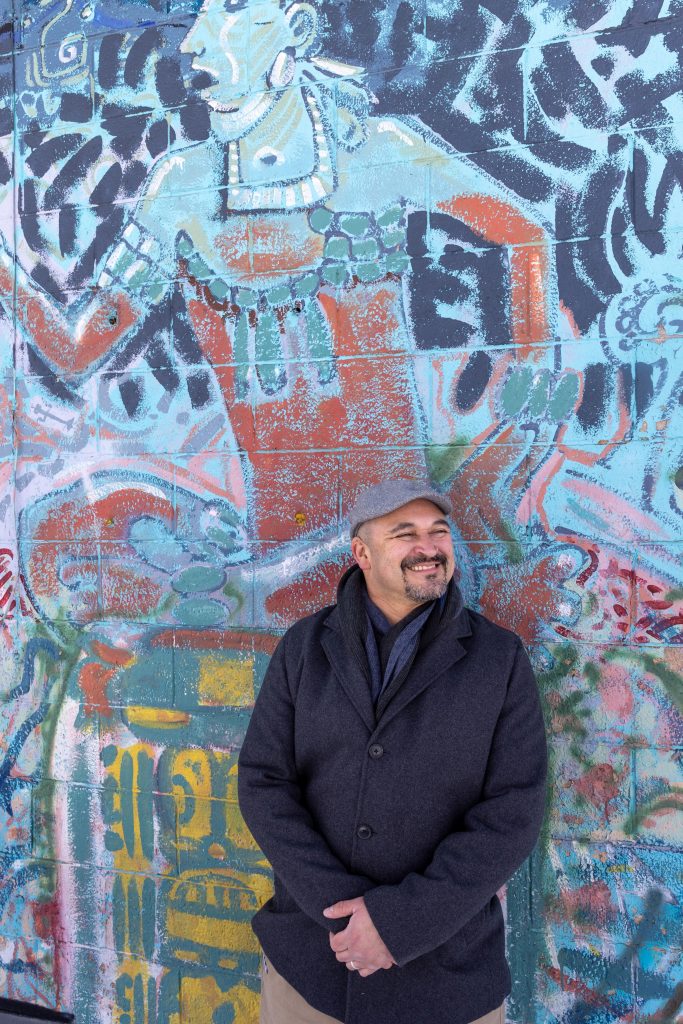
Vasquez’s family moved to Flagstaff from California in 1989, when he was 13. His father, Dr. Miguel Vasquez, worked for NAU as a professor of anthropology. His mother, Marina Vasquez, recently retired after working for more than 20 years in the Applied Indigenous Studies program.
When it was his turn to pick a college, Vasquez chose NAU and got his degree in Biology with minors in Chemistry and Latin American Studies, then went on to earn a master’s in Applied Anthropology. As an undergraduate, he was a founding member of the campus chapter of FACES (Fostering and Achieving Cultural Equity and Sensitivity), aimed at diversity and inclusion in healthcare. Upon graduation, he received the Caesar Chavez Award for his work on behalf of the Hispanic student community.
After grad school, Vasquez worked in community organizing and then as an adjunct professor at NAU, teaching Chicano Studies and other courses. During his career leading after-school programs at Killip Elementary, Vasquez secured $1.5 million in federal grants to establish more robust programs and services including a science camp, a 10-time state championship-winning chess club, other STEM initiatives, a partnership with the Flagstaff hospital to combat childhood obesity in schools, and more.
Applying anthropology to community leadership
His anthropology degree, he said, has served him well over the course of his career in all different settings.
“Anthropology is the study of people and cultures,” he explains. “It gives me insight into different peoples and cultures, and there are diverse peoples and cultures in the district I represent. And that’s helpful because it gives me an objective mind in terms of meeting people and trying to understand how to best serve them.”
The key, he says, is understanding relationships and how to work within different networks.
“Another thing that I learned from anthropology that helps me out a lot is social networks and learning the connections between different peoples. If you can identify the social network, that helps you determine whom you need to talk to, and when you want to do something in a certain community, who are your gatekeepers.”
So what can you do with an anthropology degree? Anything you want—because where you study matters just as much as what you study. NAU was a foundational influence for Vasquez in both life and career, one that turned his passion for community into a career of service. “My formation is pretty much a result of NAU. You know, we moved here when I was 13 years old, and my family has been involved in various capacities with the university. It’s a really important part of who I am.”

